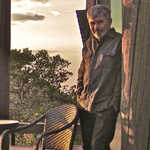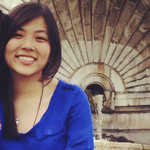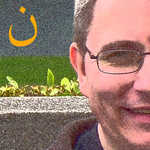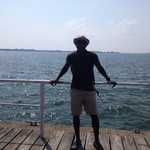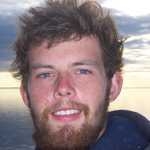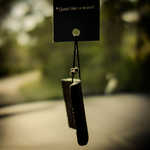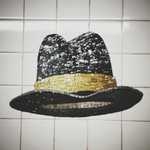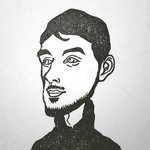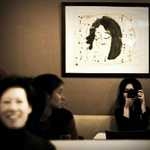We spent two days in Tawau, ignorantly bullying our way into same day visas on the first, but missing the ferry, anyway, because we forgot to check the schedules on the second. In a fit of good luck mixed with the bad, though, we met the captain of the ship while waiting in line for coffee, and he let us drive the whole shebang over the border into Indonesia. It took two and a half hours, throughout which we sat in the pilot house, wrenching the great wheel right and then left to avoid shallow spots. Behind us, over 200 passengers hadn’t a clue — their lives were in the hands of some sugary goofballs.
At first, I didn’t understand why people put so much rice on their plates at dinner; then I saw that they typically ate with their hands, using the rice as a kind of food velcro. They only used spoons and knives when we were around, out of politeness. Then, I felt guilty for resenting the necessity of pants. We were each invisibly giving a little, you see. After living on a riverboat for two days with a pair of devout Muslim men, it was revealed to us that they had quizzed our tour guide endlessly on Western behaviors: “In which hand do you hold the spoon? Should we eat in multiple courses? What is the most common dessert?” They were extremely nervous and poised. Meanwhile, E. and I were calling the crew “Handsome Family” and trailing our feet off the bow, into the water. Oblivious as fishes.
Men that were less polite tried to gain our attention by regularly throwing their cigarette butts at our feet. “Hey Mister,” they’d say to us in English. We fought back, targeting the most egregious swindlers and pulling a fast one at the last possible minute. Everywhere we went our actions were broadcast like news reports, passed from mouth to mouth over our heads; onlookers discussing the food we ordered, the clothes we wore, where they thought we were from. It was a massive, moving network of intense speculation. When bidding goodbye to a family that had invited me in for tea, a grandfather shook my hand gravely, tears visible in his old, gray eyes. “You are the first person with blue eyes that I have ever shaken hands with,” he told me, trembling slightly.
Every night there were tropical thunderstorms. I was delighted but everybody else was grumbling: the lightning made them jumpy. “Storms aren’t so great for people who live mostly outdoors,” E. monotoned from one corner of her mouth while sipping Rocket Fuel from the other. The Rocket Fuel was quality stuff, home fermented liquors made from whatever was around: banana peels, orange slices, rice pieces. It tasted like gasoline and was highly effective. Coming into the country, the immigration officials had warned us with full page portraits of confiscated liquor bottles. “Jail,” they said sternly. “Jail,” they repeated. Then they pretended to have lost our passports and asked if we were married, while giggling maniacally. It took over two hours to clear their offices, for what presumably should have been twenty minutes.
E. wanted to live in Mexico, Papua New Guinea, Borneo, and somewhere else, eventually.
All places were hot and sitting still was impossible. We reduced our wardrobe to a few pieces of disposable clothing each, to prevent our stink from spreading onto everything we owned. This did not, however, prevent the spread of our stink in public places, something we found particularly embarassing every time that we were crammed into tiny, public busses with dozens of people for hours at a time. These rides between places were often long and excruciating — excruciating for the others, I mean, because E. and I would be shaking with laughter and making jokes the whole way. Eventually a simple hand gesture was enough to set us off, leaving the woebegone others to muddle confusedly over our apparent and boundless joy. Meanwhile, the busses were driven like misfired mitochondria, pure hysterical energy. They drove inside and outside of other vehicles, over potholes, and straight into oncoming traffic, even in torrential, typhoon-esque downpours. “What the fuck is this!” shouted E., who’d been sleeping. It was pouring rain out of a black sky and our driver was speeding in the wrong lane while texting.
It was even worse when we tried to leave. I’d forgotten my departure card and they wouldn’t let us through. We thought they were kidding until we realized they weren’t, and that’d we have to bribe them or die, old women together, in Indonesia. E. pulled out a field recorder, large and pulsing with an ominous red eye. The immigration official paled considerably. “Bichare! Bichare!” she coaxed sweetly. Talk, talk. “We are journalists.” We were shown immediately into the back office, where we were given cake and watched the boss accept bribes for the rest of the afternoon.
“Why are you here?” he eventually asked us. We told him: we had come to Kumai to find the last remaining orangutans. There are only a few tens of thousand left in the world, and most of them are in the jungles of Borneo. They are tentatively adjusted to humans, by now, so when we finally did come across them, they eased out of the trees and would knuckle around the paths alongside us. A youngish male, a mother, and a rusty-colored beast named Tom. We were like children, then, sparkling with excitement.
This was before, due to uncontrollable circumstances, we got stuck. Then, we coaxed free room and board from an out-of-work river boat, sleeping in the shadows of cargo ships and waking at 5 AM with the daily prayer calls. 5 AM was also when they powered on the Bird Houses — huge concrete behemoths that shouted mimicked bird calls from dawn until dusk, in the hopes of attracting sparrows, whose intricate spit nests could be collected and exported to China for thousands and thousands of dollars. The river boat owner, face pitted from crystal meth use, slept in the hold until noon. He spoke five or six languages, an economic sort of intelligence that availed him to the thousands of tourists who came through each year. “He’s a real character,” they’d probably confide later, to their friends. “Pretty sure he spent our entire deposit in the pub the night before. Showed up late, eyes shot to bloody hell.” and the like.
Our own boat was a problem, too. We’d left it in Semporna, over 700 miles away, in the care of some fishermen. They hated us by now, we suspected. It’d been two weeks and we’d said we’d be gone three days. Things happened, though. It took us eight days to get out, but only three to get back, and we struggled into the dingy with a carton full of beers, cigarettes, and wine. Peace offerings. The fishermen accepted gladly and hadn’t even minded our absence. Instead, they were proud for having taken excellent care of the boat. (We were never sure, but there was even some evidence that they had cleaned.) Afterward, we all drank long into the night, smoking cigarettes and doing the robot to pop songs.
In the end we were broke, but we had celebrated living.


